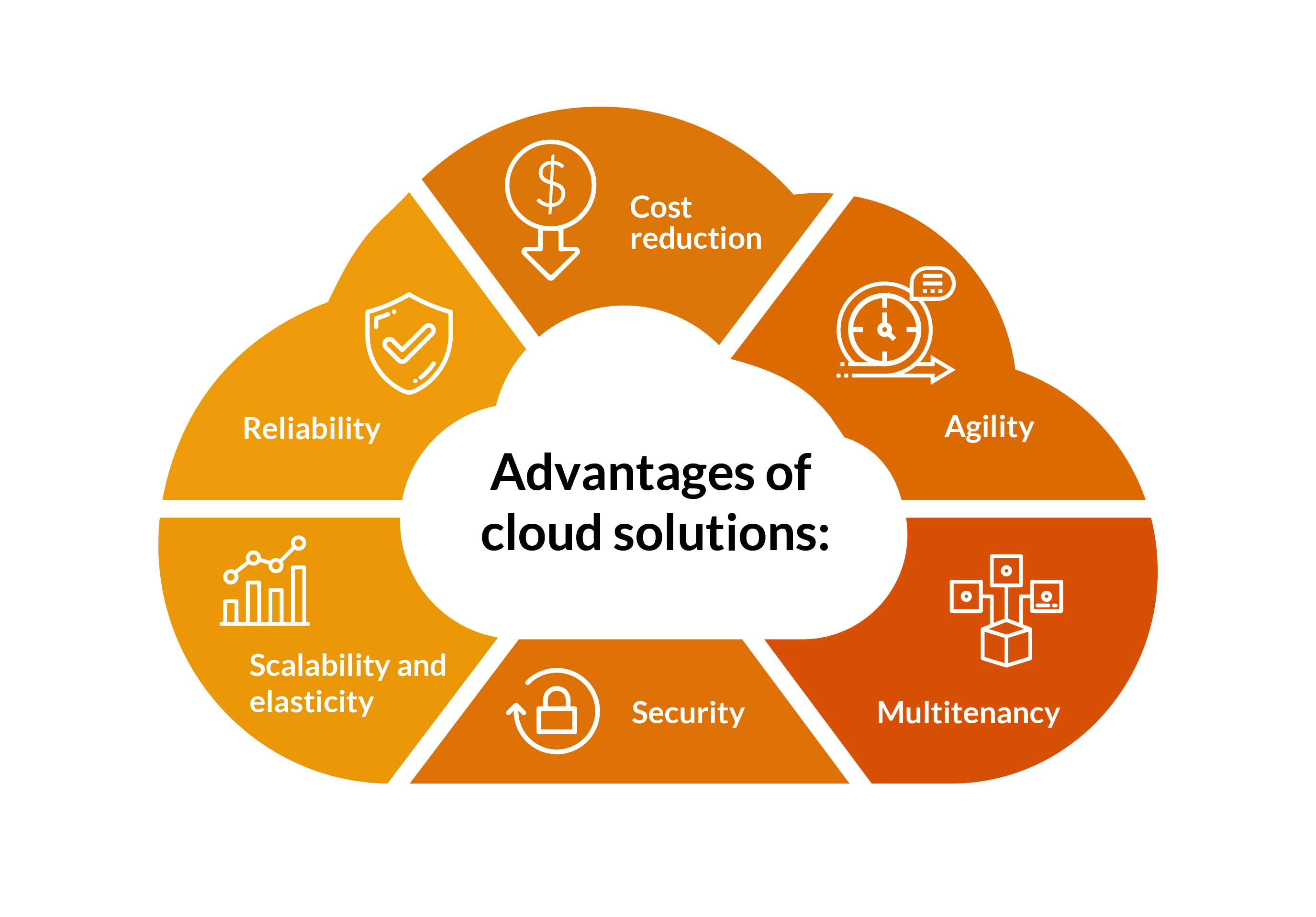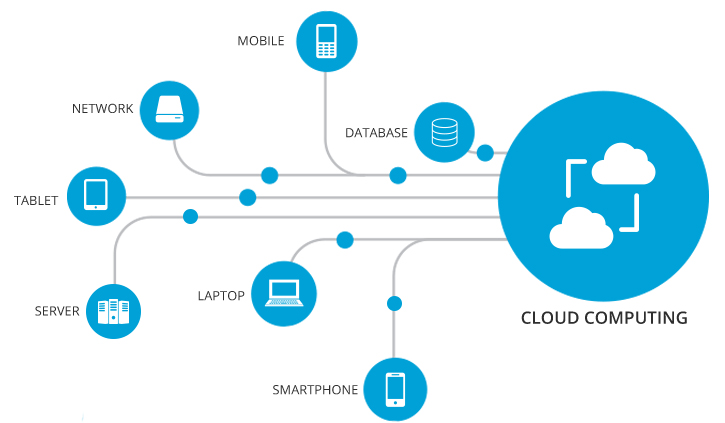LinkDaddy Cloud Services Decoded: Insider Insights into Universal Cloud Service Advancements
LinkDaddy Cloud Services Decoded: Insider Insights into Universal Cloud Service Advancements
Blog Article
Streamline IT Monitoring With Cloud Services
Cloud services have arised as a sensible option for businesses looking to improve efficiency, decrease costs, and boost general IT efficiency. How specifically do these cloud services reinvent traditional IT administration practices? Allow's explore the transformative effect of leveraging cloud solutions on IT operations and the crucial considerations for successful implementation.
Advantages of Cloud Services

Moreover, cloud services allow organizations to enhance their operational efficiency by simplifying procedures and lowering the moment and sources needed for managing IT framework. With cloud solutions, companies can automate routine jobs, such as software program updates and data backups, liberating IT groups to concentrate on even more strategic campaigns that drive organization worth.

Boosted Scalability and Versatility
Cloud services offer businesses with unrivaled scalability and versatility in managing their IT resources efficiently. Scalability is a critical function of cloud solutions that allows business to quickly readjust their IT sources based upon demand. With cloud solutions, businesses can swiftly scale up or down their computer resources, storage ability, and network bandwidth to satisfy changing requirements without the demand for substantial in advance financial investments in hardware. This versatility allows companies to adapt to fluctuating workloads, seasonal needs, or unexpected growth without experiencing downtime or performance problems.
Additionally, cloud solutions supply the flexibility to pick from a range of solution designs, such as Infrastructure as a Solution (IaaS), Platform as a Solution (PaaS), or Software Application as a Solution (SaaS), based on the certain requirements of the business. The enhanced scalability and adaptability provided by cloud solutions equip businesses to enhance their IT operations and remain nimble in today's vibrant market atmosphere.

Cost-Effectiveness and Financial Savings
With the capability to efficiently allot resources based upon demand, services utilizing cloud services can harness substantial cost-effectiveness and realize considerable financial savings in their IT procedures. Cloud services use a pay-as-you-go model, enabling firms to only pay for the resources they make use of, eliminating the requirement for big ahead of time investments in hardware and software program. This scalability ensures that services can easily adapt to changing demands without spending too much on unnecessary sources. Furthermore, cloud solutions reduce maintenance costs by changing the responsibility of hardware maintenance and software program updates to the company. This decreases the requirement for committed IT staff to manage infrastructure, further lowering functional expenses. Furthermore, the cloud supplies economic situations of range, with companies spreading out expenses throughout several customers, leading to reduced specific prices for solutions like storage space and computer power. In general, the cost-effectiveness and cost savings achieved through cloud services enable businesses to reallocate sources towards innovation and growth initiatives.
Improved Safety And Security and Conformity
Enhancing the general safety and security position and making certain regulative compliance are vital considerations for services leveraging cloud services in their IT monitoring techniques. Cloud provider use sophisticated safety and security actions, such as data security, multi-factor authentication, and automated back-ups, which can reinforce a company's safety framework. These suppliers likewise stick to strict governing standards, such as GDPR, HIPAA, and PCI DSS, assisting organizations satisfy compliance demands better.
Implementing cloud services can improve protection by offering systematized control over access management, tracking, and information protection. This central strategy simplifies safety and security monitoring and makes certain consistent application of safety plans across the organization. Cloud solutions typically supply real-time security updates and spots, reducing the risk of vulnerabilities and potential breaches.
Best Practices for Cloud Application
Carrying out cloud services successfully needs an organized technique that incorporates comprehensive planning and thorough implementation. To ensure a smooth transition to the cloud, companies need to begin by performing a detailed assessment of their current IT facilities and determining which workloads are suitable for movement. It is vital to develop clear goals and define key efficiency signs (KPIs) to measure the success of the cloud implementation.
One of the most effective methods for cloud execution is to meticulously pick a cloud service supplier that lines up with the company's demands in regards to safety, scalability, conformity, and cost-effectiveness. Additionally, developing an in-depth migration plan that lays out the steps included, timelines, and duties is critical for a successful execution.
Frequently enhancing and monitoring cloud resources to make certain efficient efficiency and price management is one more essential element of cloud application best practices. Continual evaluation of the cloud setting and remaining informed about updates and new functions supplied by the cloud service provider can better boost the organization's cloud strategy. By following these finest methods, companies can enhance their IT monitoring and take full advantage of the advantages of cloud solutions.
Conclusion
In verdict, leveraging cloud services for IT management supplies countless benefits, including enhanced scalability, cost-effectiveness, boosted safety, and compliance. Overall, cloud solutions improve operational effectiveness and agility in handling IT facilities.
Additionally, cloud solutions supply the flexibility to pick from a range of service versions, cloud services press release such as Facilities as a Solution (IaaS), System as a Service (PaaS), or Software as a Service (SaaS), based on the certain needs of the business. Additionally, cloud services reduce upkeep costs by changing the obligation of hardware maintenance and software updates to the solution provider.Enhancing the general security pose and ensuring regulative conformity are vital factors to consider for organizations leveraging cloud services in their IT monitoring methods.On a regular basis enhancing and checking cloud resources to make sure efficient efficiency and expense monitoring is one more essential element of cloud application best methods. Continual assessment of the cloud setting and staying informed about updates and brand-new features provided by the cloud copyright can better improve the company's cloud strategy.
Report this page